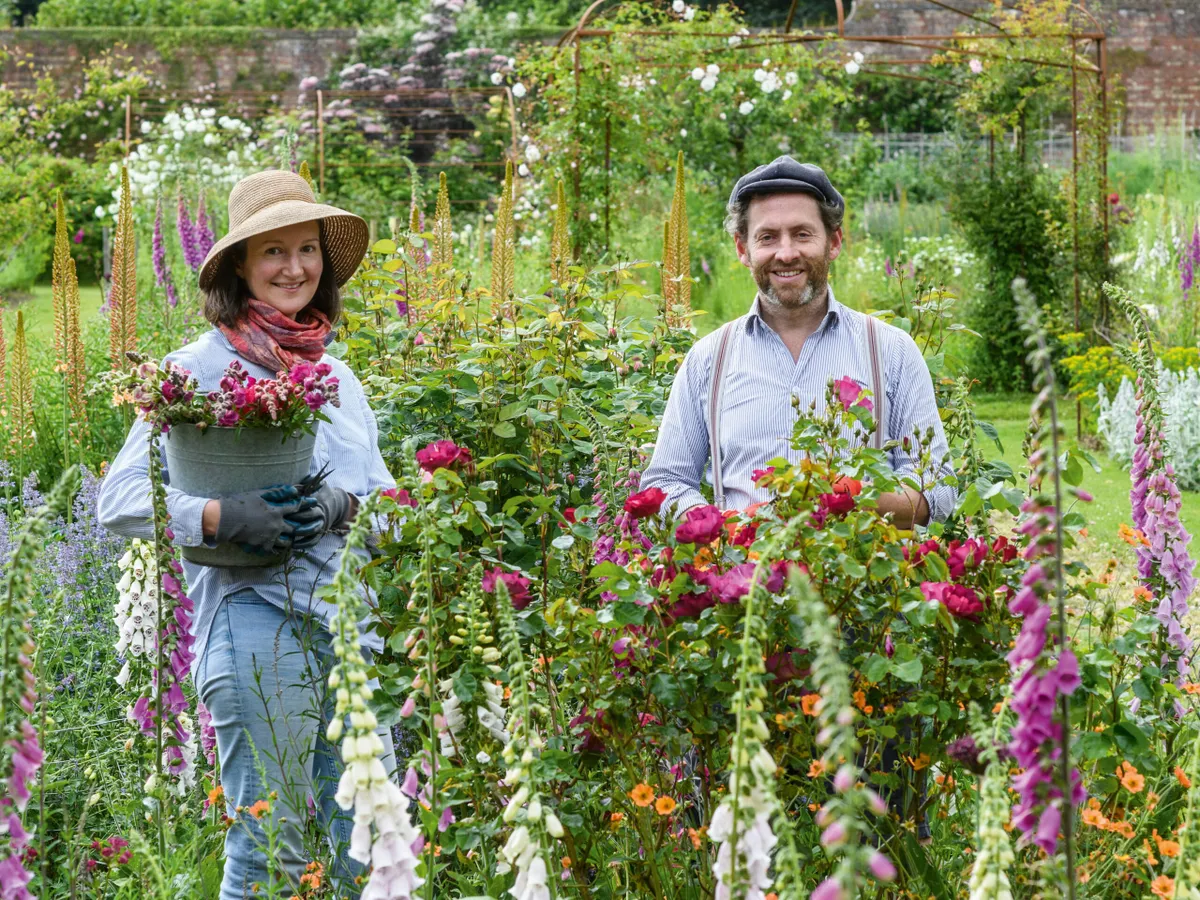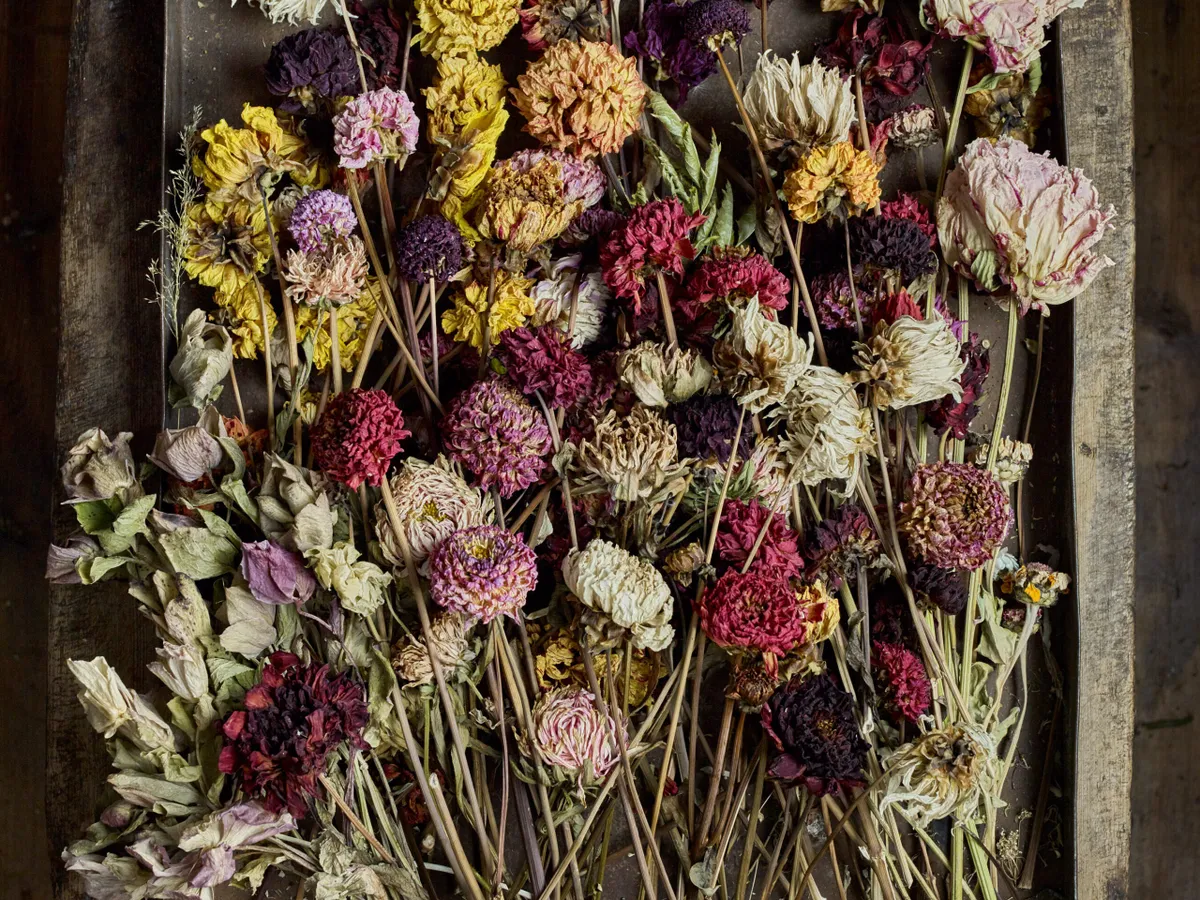If you're looking to buy or send a bouquet of cut flowers, or organise wedding or funeral flowers, it can be difficult to make sure that you are buying them ethically and sustainably. Increasingly, we are thinking about flowers as we do about the food that we buy: we appreciate the value of seasonal, fresh, locally grown, unusual varieties over imports that do not vary throughout the year.
Fifty years ago, imported flowers were rare and exotic, but now they are the norm - according to the cut flower grower collective, Flowers from the Farm, 86 per cent of the cut flowers sold in the UK are imported. As a result, you can buy a bunch of roses at Christmas or on Valentine's Day, even though they naturally flower in the UK in summer, just as you can now buy strawberries all year round at the supermarket.
Valentine's Day: 10 alternatives to red roses
An imported bouquet of flowers can come with a large carbon footprint. Most of the flowers sold by florists, supermarkets and wholesalers in the UK are imported from Holland, but also countries as far afield as Ecuador, Colombia, Kenya and even Ethiopia, in chilled storage containers. According to Flowers from the Farm, the carbon footprint of a bouquet of imported blooms is estimated to be 20 times higher than a freshly-picked bouquet from a local flower farmer.
Imported flowers may also have been produced using chemicals that are harmful to the local environment and workforce, with poor labour conditions and rights.
How to buy locally grown, UK flowers

Buying locally grown UK flowers is the most sustainable way to buy cut flowers. They will have been grown according to the seasons, without additional light or heat. They will be freshly picked and locally delivered, so they are low on travel miles. They will also have been grown with soil health and wildlife in mind.
The number of British flower farmers is steadily increasing: the Flowers from the Farm collective has a membership of nearly 1,000 independent, artisan flower farmers around the UK, which means there should be a flower grower near you.
You or your chosen recipient will also enjoy a bouquet or arrangement that may have a wilder, natural look and is packed with unique and seasonal foliage and flowers that are naturally in bloom at the time you have bought them - such as narcissi, anemones and tulips in spring, delphiniums, cornflowers, peonies, roses, snapdragons and sweet peas in summer and dahlias, sunflowers, rudbeckias and chrysanthemums in autumn, plus seasonal herbs and foliage.
UK-grown flowers are often bursting with scent, too, unlike most commercially grown flowers that are bred for durability and longevity and not their perfume.
Many UK cut flower growers offer subscriptions for bouquets or posies that can be collected or delivered locally. At some cut flower farms, you can also pick your own bouquet.
The best pick your own flower farms to visit
The best places to pick your own sunflowers
To find a cut flower grower near you or your chosen recipient, go to https://www.flowersfromthefarm.co.uk/find-flowers/ and type in the postcode.
Other ways to buy cut flowers ethically

Look for a label - If you're buying flowers in a supermarket, look for a 'British grown' symbol (often signified by a Union Jack). A Fairtrade symbol means that while the flowers are still imported, the employees will have decent working conditions and rights, and the use of pesticides will be limited. The Florverde Sustainable Flowers scheme requires growers to protect workers' rights and ensure good environmental practices.
Do some research - some cut flower suppliers claim to be carbon neutral, and some supermarkets offer some British cut flowers, for example.
Check the packaging - many bunches of flowers are wrapped in non-recylable cellophane, so look for or request more sustainable alternatives such as brown paper. Raffia or twine is a good alternative to rubber bands. Some cut flower subscription services offer a plastic-free service.
Consider buying dried flowers - dried flowers will last much longer than a bouquet.
Consider buying a house plant - again, a house plant will last much longer than a bunch of flowers.
Cut flowers from your own garden - consider starting your own cut flowers, or cut annuals, perennials, shrubs and trees from around the garden - watch the Gardens Illustrated Masterclass on cutting flowers from your garden with grower Rachel Siegfried.
Compost your flowers after they have gone over, or add them to your council green bin.